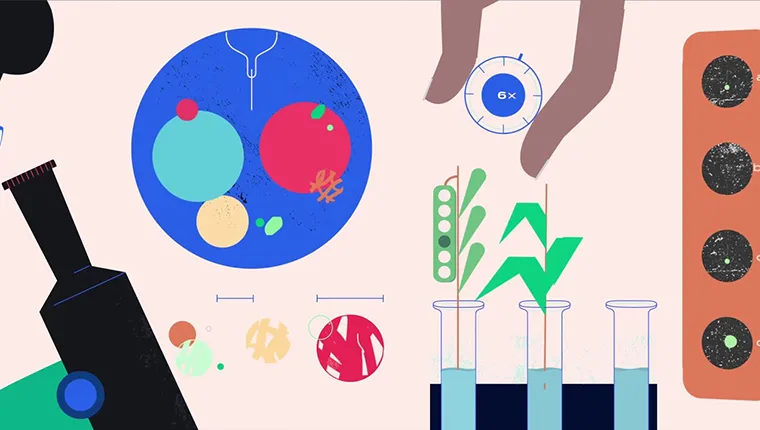Technology and Development
As Great Britain’s Industrial Revolution and India’s Green Revolution have shown, technological innovation can drive extraordinary development. Explore how digital advancements are further driving progress today.
Development can sometimes be a gradual process. In certain points in history, however, progress has accelerated. These moments, often supported by major advances in technology, can jump-start new eras supporting in living more comfortable, healthier, longer lives.
The Industrial Revolution
The Industrial Revolution in Great Britain made transporting goods and people much faster than before. Beginning in the late 1700s, inventions like the spinning jenny, water frame, and the steam engine transformed the world. As new goods and technologies spread from country to country, populations increased and average income saw unprecedented growth, marking the first time in history where a standard-of-living improvement was widespread.
The Green Revolution
With rising populations came new challenges. In the mid-1900s, India was experiencing a massive food crisis. The country had recently gained independence and was facing political chaos and famine. Indian officials sought out new crops and agricultural technology, like fertilizer and imported lab-tested lab-made grain varieties. The new innovations resulted in the production of ten times the yield of traditional rice. The green revolution in India produced “miracle rice” that fed hundreds of millions of people.
These manufacturing and agricultural advancements have driven the world’s development, and today, there is even more potential for innovation.
Technology, AI, and the Next Industrial Revolution
Some experts believe that a new revolution — a digital revolution — is well underway in the twenty-first century. This digital revolution, also known as the fourth Industrial Revolution, builds upon the third industrial revolution that used technology to automate production.
The speed and transformative impact of the digital revolution will force people to rethink how countries develop. Unlike the first Industrial Revolution that took 100 years to develop, changes unfolding today with the help of digital technology may have more impact more quickly.
One of the cornerstones of this revolution is the development and growth of artificial intelligence (AI), supercomputing, and data analytics. AI is already present in society today: from drones to virtual assistants. AI now has a stake in major forces around the world, influencing government, transforming weaponry, and combating climate change. Much of the progress made in recent years has come from increases in computing power and the availability of data to predict cultural interests. The digital revolution may bring both benefits and challenges for global development. The results are yet to be seen. It has the potential to raise global income levels and improve the quality of life for people around the world. It can also foster more economic inequality and disrupt the job market.
In this revolution, data is the foundation. Arguments over use, management, and ownership are influencing new currencies, new legislation, corporations, and international relations. We know innovation has the power to drive development, and as digital capabilities grow and spread, there are still billions who have never used the internet.
